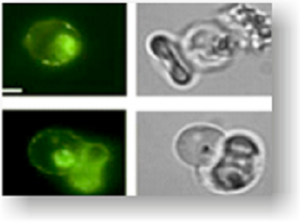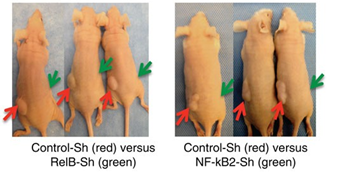Our research focuses on amalgamating DNA nanotechnology and biomolecule in its native form to answer basic questions that are pertinent to the field of Biophysics. In particular we are interested in designing reconfigurable DNA structures responsive to external stimuli and its potential application in therapeutics. We are also interested in exploring the mechanism of biomolecule… Continue reading Single Molecule Biophysics Lab (Nibedita)
Category: Biology
.
Plant Stress Biology group (Annapurna Devi Allu)
Our research focuses on understanding the transcriptional and epigenetic regulation of plant growth and stress responses. We are particularly interested in studying the effect of priming on plant response to individual and combined environmental stresses. The molecular mechanisms that determine the duration of primed state and stress memory in plants will be investigated.
Ash Lab (Ashwani Sharma)
Ash Lab works in the area of nucleic acid aptamers, which are single stranded DNA or RNA oligonucleotides having high affinity and specificity to their target. Aptamer binding to its target is utilized in designing new biosensing platforms for disease detection and diagnostics. In addition, the lab also focuses on construction of DNA/RNA based nanoparticles… Continue reading Ash Lab (Ashwani Sharma)
Cellular and Vascular Biology Lab (Sanjay Kumar)
Our lab research focuses on signaling mechanisms that define the complex responses to TGF-β in the mammalian system. We also study the role of mitochondrial proteins in normal cellular functions and human diseases.
Neuroscience Lab (Vasudharani Devanathan)
Our group is focused on the following areas of research: Cell adhesion molecules (CAMs) in regulating neurogenesis, neurite outgrowth and degeneration; specific interactions among CAMs and their downstream signalling mechanisms. Molecular mechanisms of neuronal dysfunction in diabetic retinopathy. G-protein signalling in platelets and neutrophils.
Cellular and Molecular Parasitology (Suchi Goel)
Our research focuses on pathogenesis of severe malaria parasite where adhesion of parasites in the microvasculature leads to activation of stress signalling pathways in human host.
Molecular Oncology and Cell Signalling (Pakala Suresh Babu)
Our group works on understanding the molecular mechanisms of coregulators in signal transduction, Gene regulation, inflammation, Cancer progression and Cancer metastasis. Our research interests also include developing transgenic and knock out mouse models for studying the role of coregulator signalling in cancer and inflammatory disorders.
Plant Development & Applied Genetics Group (Eswar Rami Reddy)
Our group focuses on deciphering the molecular mechanisms and the regulatory systems that enable plants to orchestrate complex root system architecture. Further, improvement of tolerance in crop plants to abiotic stresses (drought, salt and heavy metal) by improving root traits.
Sivakumar Vallabhapurapu Research Area:
We work in the areas of Cancer Biology and Immunology. The focus is on how different signaling pathways regulate specific gene expression signatures in different cancer cell types and in the immune cells. While our major focus is on NF-kB signaling, which is abnormally activated in many cancer types and is the Central Pillar of… Continue reading Sivakumar Vallabhapurapu Research Area:
Molecular Microbiology Laboratory (Raju Mukherjee)
The focus of our research is circumscribed around understanding the biology of Mycobacterium species with an ultimate objective of developing strategies for successful interventions to stop the diseases (e.g. Tuberculosis) caused by these microorganism.











